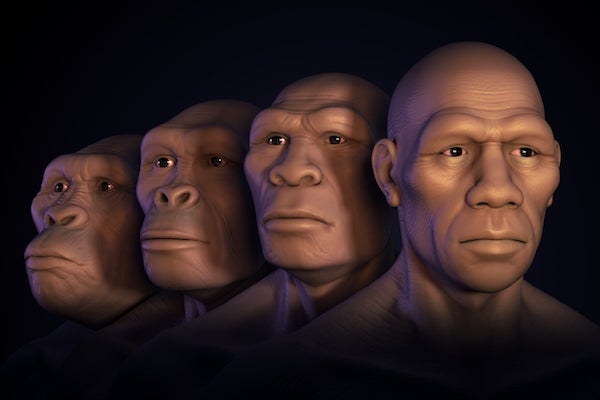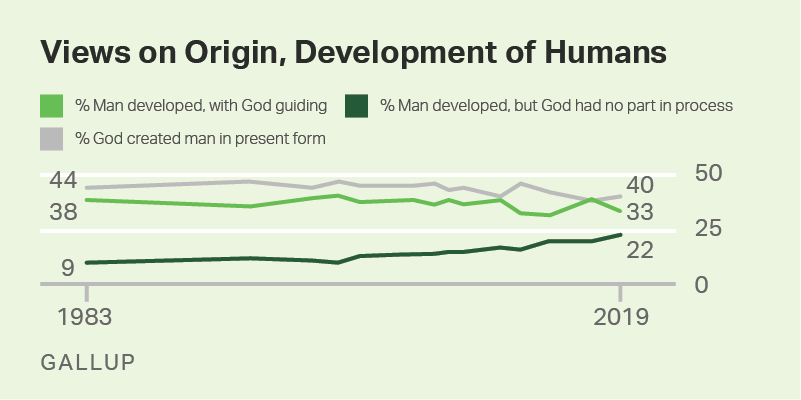SLD
Contributor
There seems to be conflict in the data of how many Americans believe in evolution (whether god directed or not)
This article from 2019 says only 18% are strict creationists, but it depends on the way the question is worded:

 blogs.scientificamerican.com
blogs.scientificamerican.com
But gallup polls over time still show a plurality of Americans are strict creationist:

 news.gallup.com
news.gallup.com
Both are from 2019. It should be noted from the first article that if given only two choices initially, the number jumps from 18% to 31%. But still there seems a huge difference in the two polls. Which is right?
Im sure it likely has to do with the way the questions are worded. But I also wonder about the utility of polls today given the ubiquity of cell phones. How can you do polls these days? Maybe go outside in a lot of different places and ask?
This article from 2019 says only 18% are strict creationists, but it depends on the way the question is worded:

How Many Creationists Are There in America?
A new survey shows the number can vary considerably depending how you ask questions about evolution
But gallup polls over time still show a plurality of Americans are strict creationist:

40% of Americans Believe in Creationism
Four in 10 Americans have a creationist view of human origins, while 33% believe humans evolved with God's guidance and 22% without it.
 news.gallup.com
news.gallup.com
Both are from 2019. It should be noted from the first article that if given only two choices initially, the number jumps from 18% to 31%. But still there seems a huge difference in the two polls. Which is right?
Im sure it likely has to do with the way the questions are worded. But I also wonder about the utility of polls today given the ubiquity of cell phones. How can you do polls these days? Maybe go outside in a lot of different places and ask?
